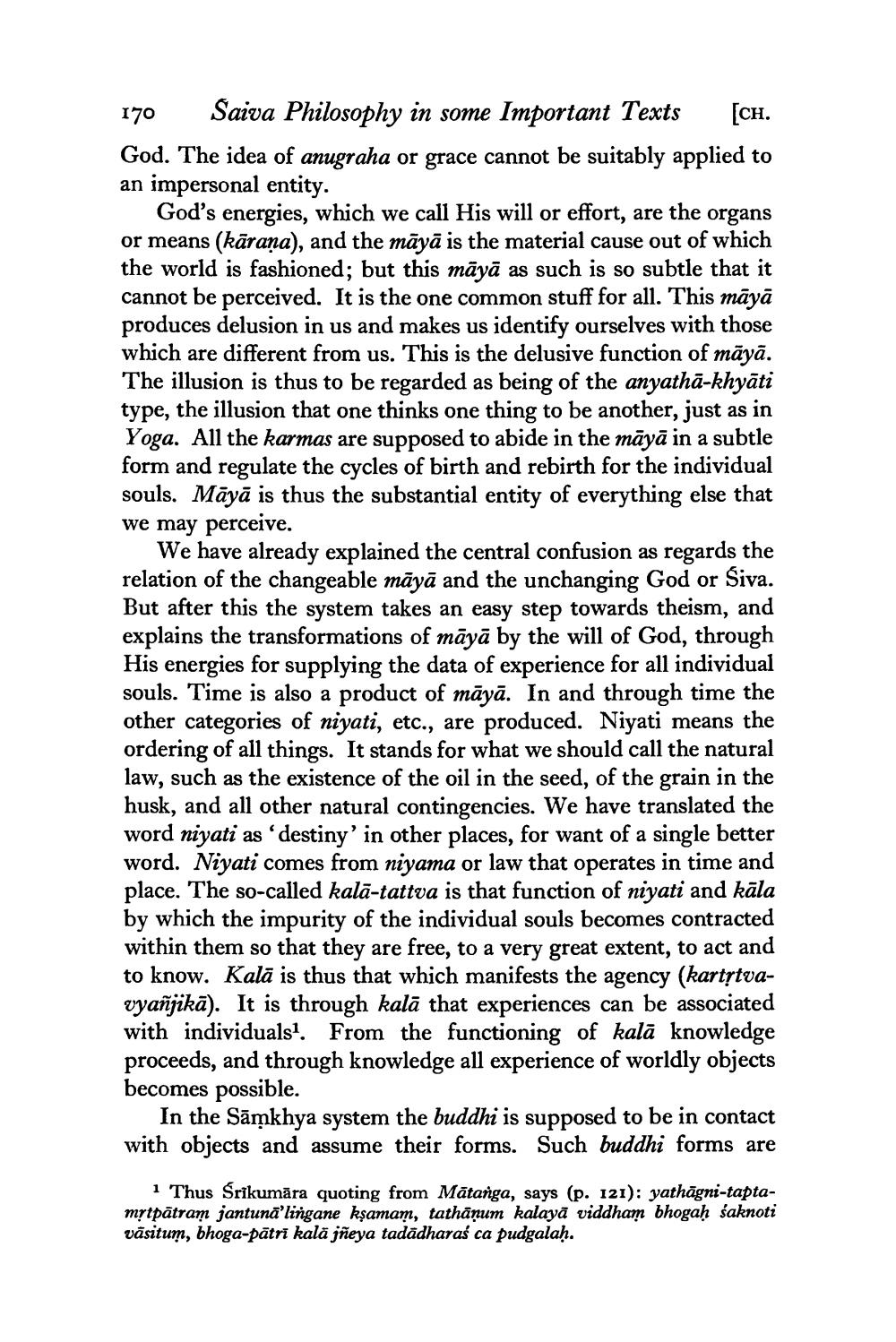________________
170 Saiva Philosophy in some Important Texts [cH. God. The idea of anugraha or grace cannot be suitably applied to an impersonal entity.
God's energies, which we call His will or effort, are the organs or means (kārana), and the māyā is the material cause out of which the world is fashioned; but this māyā as such is so subtle that it cannot be perceived. It is the one common stuff for all. This māyā produces delusion in us and makes us identify ourselves with those which are different from us. This is the delusive function of māyā. The illusion is thus to be regarded as being of the anyathā-khyāti type, the illusion that one thinks one thing to be another, just as in Yoga. All the karmas are supposed to abide in the māyā in a subtle form and regulate the cycles of birth and rebirth for the individual souls. Māyā is thus the substantial entity of everything else that we may perceive.
We have already explained the central confusion as regards the relation of the changeable māyā and the unchanging God or Siva. But after this the system takes an easy step towards theism, a explains the transformations of māyā by the will of God, through His energies for supplying the data of experience for all individual souls. Time is also a product of māyā. In and through time the other categories of niyati, etc., are produced. Niyati means the ordering of all things. It stands for what we should call the natural law, such as the existence of the oil in the seed, of the grain in the husk, and all other natural contingencies. We have translated the word niyati as 'destiny' in other places, for want of a single better word. Niyati comes from niyama or law that operates in time and place. The so-called kalā-tattva is that function of niyati and kāla by which the impurity of the individual souls becomes contracted within them so that they are free, to a very great extent, to act and to know. Kalā is thus that which manifests the agency (kartstvavyañjikā). It is through kalā that experiences can be associated with individuals?. From the functioning of kalā knowledge proceeds, and through knowledge all experience of worldly objects becomes possible.
In the Sāņkhya system the buddhi is supposed to be in contact with objects and assume their forms. Such buddhi forms are
1 Thus Srikumāra quoting from Mātanga, says (p. 121): yathāgni-taptamrtpătram jantunā'lingane kşamam, tathāņum kalayā viddham bhogah saknoti vāsitum, bhoga-pātrī kalā jñeya tadadharaś ca pudgalah.




